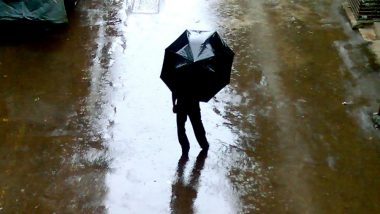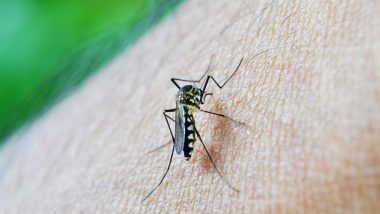Mumbai city is inundated with nonstop rains for four consecutive days since Friday, June 28. Many parts of the city have been experiencing waterlogging and floods. Stranded office goers who braved the rains have been forced to wade through ankle and knee length water. It may seem like a minor inconvenience, walking through rainwater can have grave consequences in a city like Mumbai. The water is often contaminated with filth from all parts of the city and is teeming with germs. So if you have walked through rainwater during the Mumbai rains, you need to take the right precautions. Monsoon 2019 Dos and Don'ts: How to Stay Safe During Heavy Rains and Flooding in This Season.
Wading through rainwater can expose you to many types of illnesses. Monsoons see an increase in diseases like leptospirosis, fungal infections, scabies and other skin diseases. Leptospirosis, a bacterial infection, is a potentially life-threatening illness that claims many lives during monsoons.
One may get infected if faeces or urine of rats infected by the leptospires bacterium gets mixed in the rainwater. The pathogen can enter the human body through cuts or abrasions on the skin if the person wades through rainwater. It can also enter the body through inhalation of water droplets infected with the bacteria. Did You Walk In The Rainwater? Take Antibiotics To Prevent Leptospirosis, Says BMC.
Incidences of leptospirosis infection shoot up during monsoons when people come in contact with puddles of rainwater. Common symptoms of leptospirosis include fever, headache, muscle aches, chills, abdominal pain, jaundice, reddening of eyes, etc., which starts showing 12 days after the exposure.
Skin diseases like scabies and, fungal and bacterial infections also go up during monsoons. Itchiness, redness and rashes are commonly seen after exposure with rainwater.
Precautions to Take If You Walked in Rainwater
Avoid wading in rainwater as much as possible. But for any reason, if you have been exposed to rainwater, take the following precautions at the earliest.
• Do not touch your face or mouth with before washing your hands.
• Discard wet clothes and shoes as soon as you reach home.
• Wash your hands and legs with antiseptic soap and soak your feet in an antiseptic solution for 10-15 minutes as soon as possible.
• Treat cuts and wounds with an antiseptic.
• Take a bath in warm water and wash yourself from head to toe.
• Powder hands and legs with anti-bacterial and anti-fungal talc containing clotrimazol.
If you have been exposed to rainwater for more than half an hour, your risk of contracting the disease goes up significantly. As per BMC guidelines, one should take 200mg doxycycline or azithromycin within 72 hours of the exposure.
(The above story first appeared on LatestLY on Jul 02, 2019 06:03 PM IST. For more news and updates on politics, world, sports, entertainment and lifestyle, log on to our website latestly.com).













 Quickly
Quickly




















